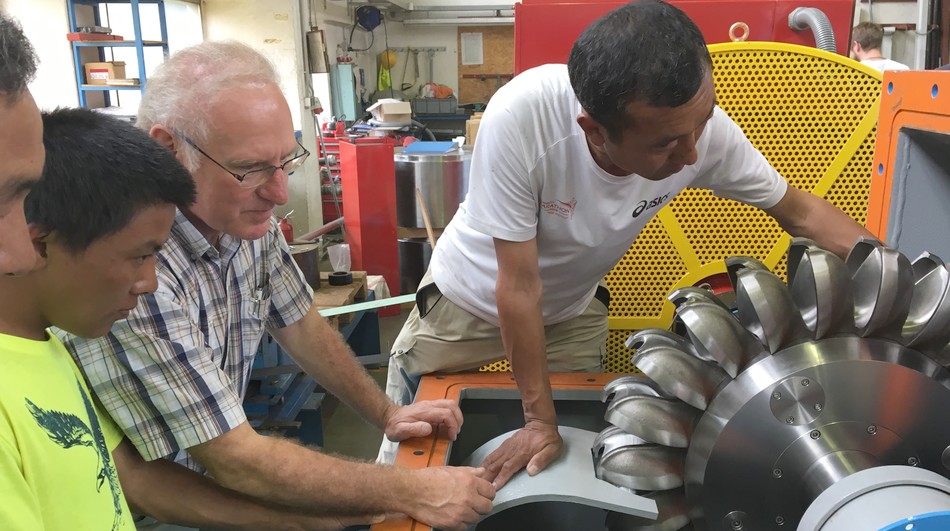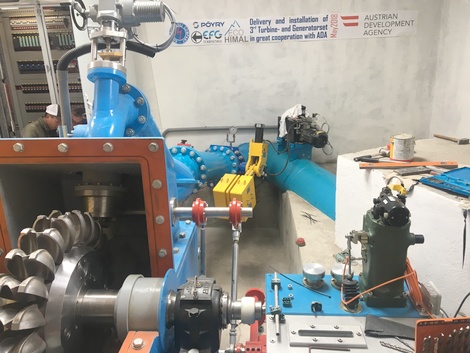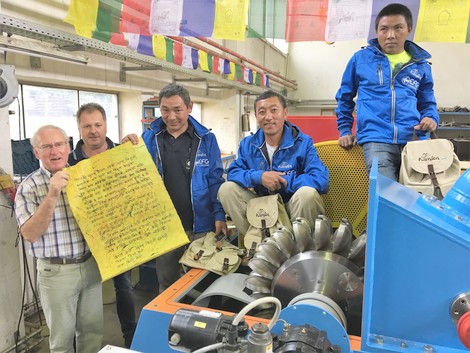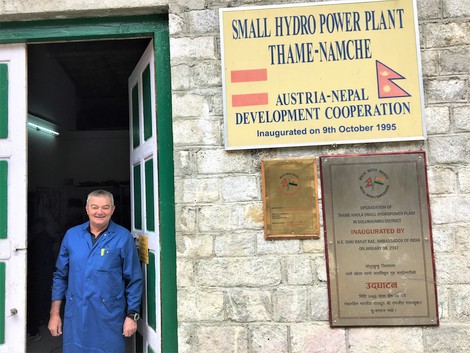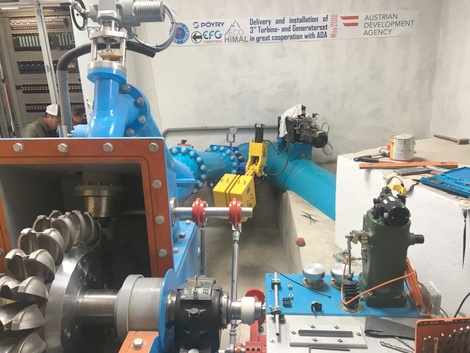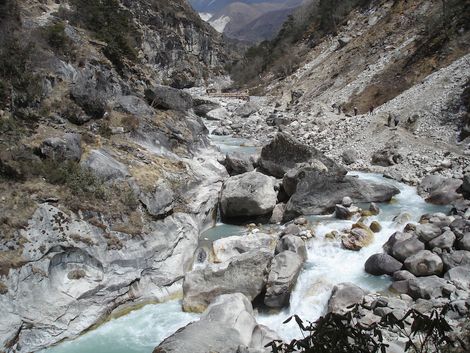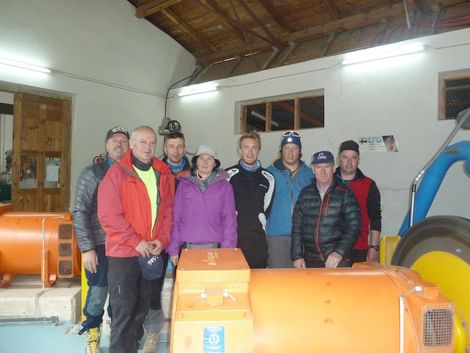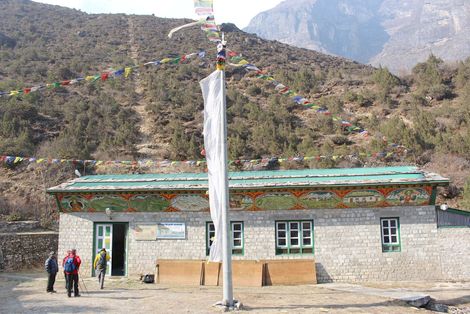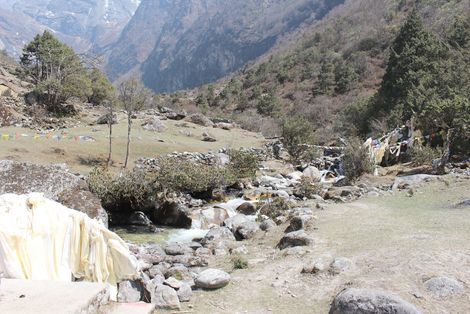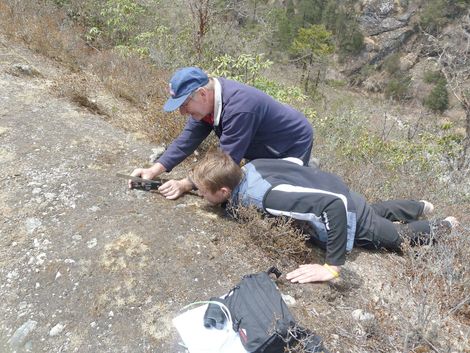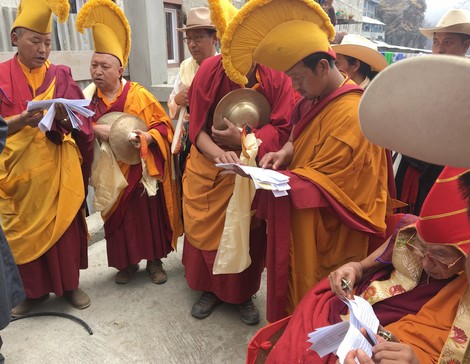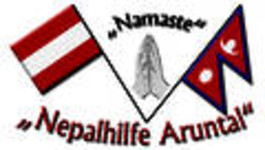Economic Partnership EFG Turbinenbau-KBC and EcoHimal
EcoHimal, the Association for Alps-Himalayas, has been working for more than 20 years in the Himalayan region and has successfully implemented numerous projects. Among them are the construction of a small hydro-power station in the Everest region in the late 1990ies. This successful project was financed by the Austrian Development Cooperation and is continued now in the new economic partnership with EFG Turbinenbau as a company with considerable know-how and experience in the field of hydro-power.
In the Everest region the costs for gas and kerosine for cooking stoves are much higher than in other parts of Nepal. This is why especially biomass such as wood and animal dung are used by the poorer people as the main energy source for cooking and heating. However, this leads to increased deforestation, soil erosion and soil degradation and furthermore to health problems among the local population. Women and children in particular are more affected by the smoke from these fires.
Since its commissioning in 1999, the hydro-power station in the Everest region has been in continuous operation. Since then, the Thame power station has been the most important source of energy for the local population in the villages connected to the power grid. Even disadvantaged and low-income villagers benefit from hydro-power: more than 400 households are charged a social tariff which allows them access to reliable and efficient energy.
In addition, hydro-power plays a significant role in ensuring a successful and environment-friendly tourism. The number of visitors to the Everest National Park has greatly increased over the past years and with it the demand for electricity in the lodges.
The Thame power station is managed successfully by the local operating company, the Khumbu Bijuli Company (KBC). The KBC team is well trained and has great know-how. However, the output of the power station in Thame no longer meets the demand for electricity in the region. Among local households and visitors to the National Park the demand has increased considerably.
Therefore it is the goal of the economic partnership between EFG Turbinenbau and EcoHimal to ensure the supply of sustainable energy and to create income-generating opportunities for the local population.
Installation of the third turbine
The construction and installation of a third turbine by EFG is designed to safeguard the supply with sustainable energy and to increase the performance of the power station. In addition, new jobs can be created and trainings for the staff conducted.
The business partnership project between EFG Turbinenbau, Khumbu Bijuli Company and EcoHimal supported by ADA makes an important contribution to the sustainable development in the Sagarmatha (Mount Everest) national park on several levels: additional jobs are created or consolidated, the improved access to hydro-power means that less wood and dung is used for heating and cooking. This reduces the dangerous emissions from open fireplaces. As a consequence, health problems but also harmful deforestation, soil degradation and air pollution can be prevented.
This one megawatt hydel is the most successful enterprise in the entire region and a model for decentralized electricity production in favour of sustainable development. EcoHimal was awarded by the Prince Albert Medal of Merit for this achievement.
The upgrading of the hydropower plant has been succussfully implemented in the period between 2017 and 2019.
Website: http://www.efg-turbinenbau.at/
To the video clip (in German):
World Heritage Mount Everest National Park - The changing lives of the Sherpas
Kontakt
EcoHimal Austria Gesellschaft für Zusammenarbeit Alpen-Himalaya
Hofhaymer Allee 11/17
5020 Salzburg
E-Mail: office@ecohimal.org
T: +43 662 829492
ZVR Zahl: 886266575


